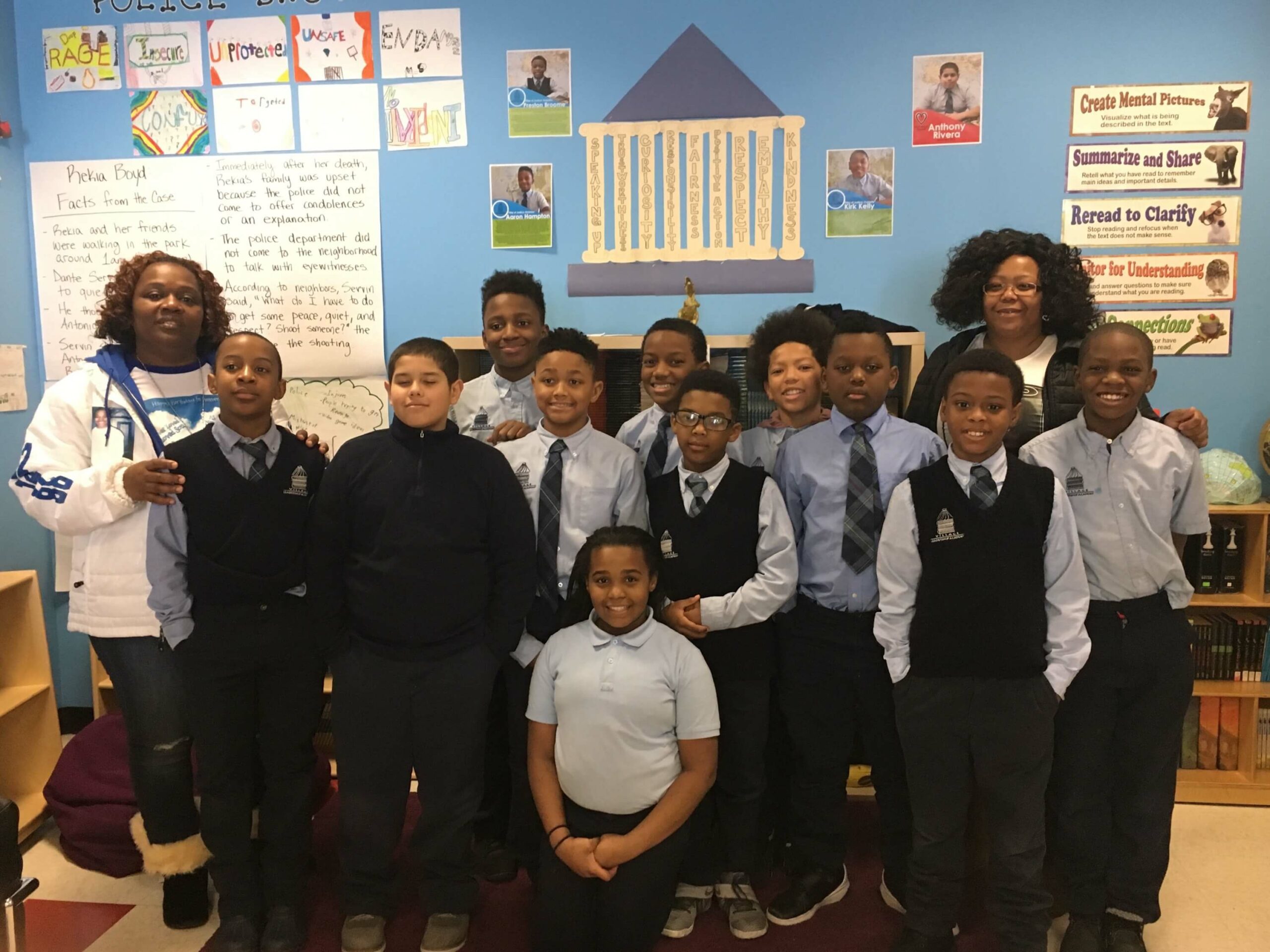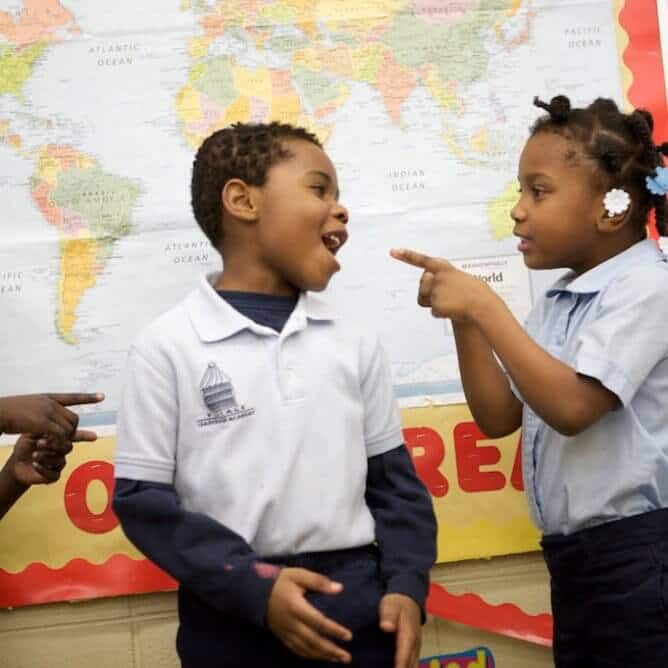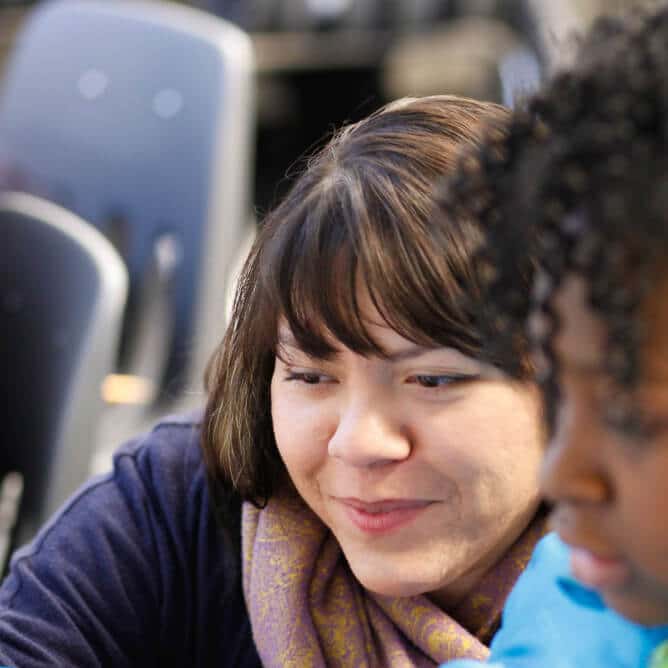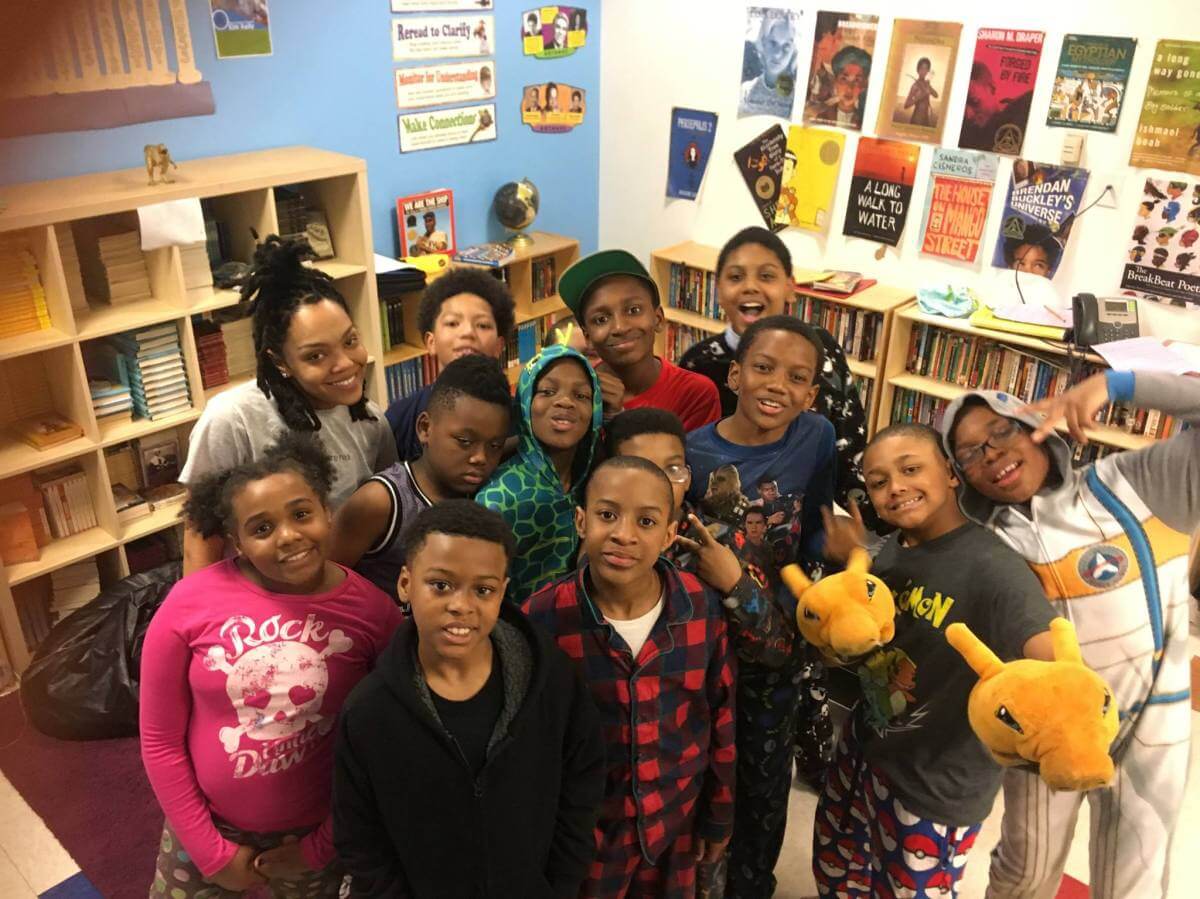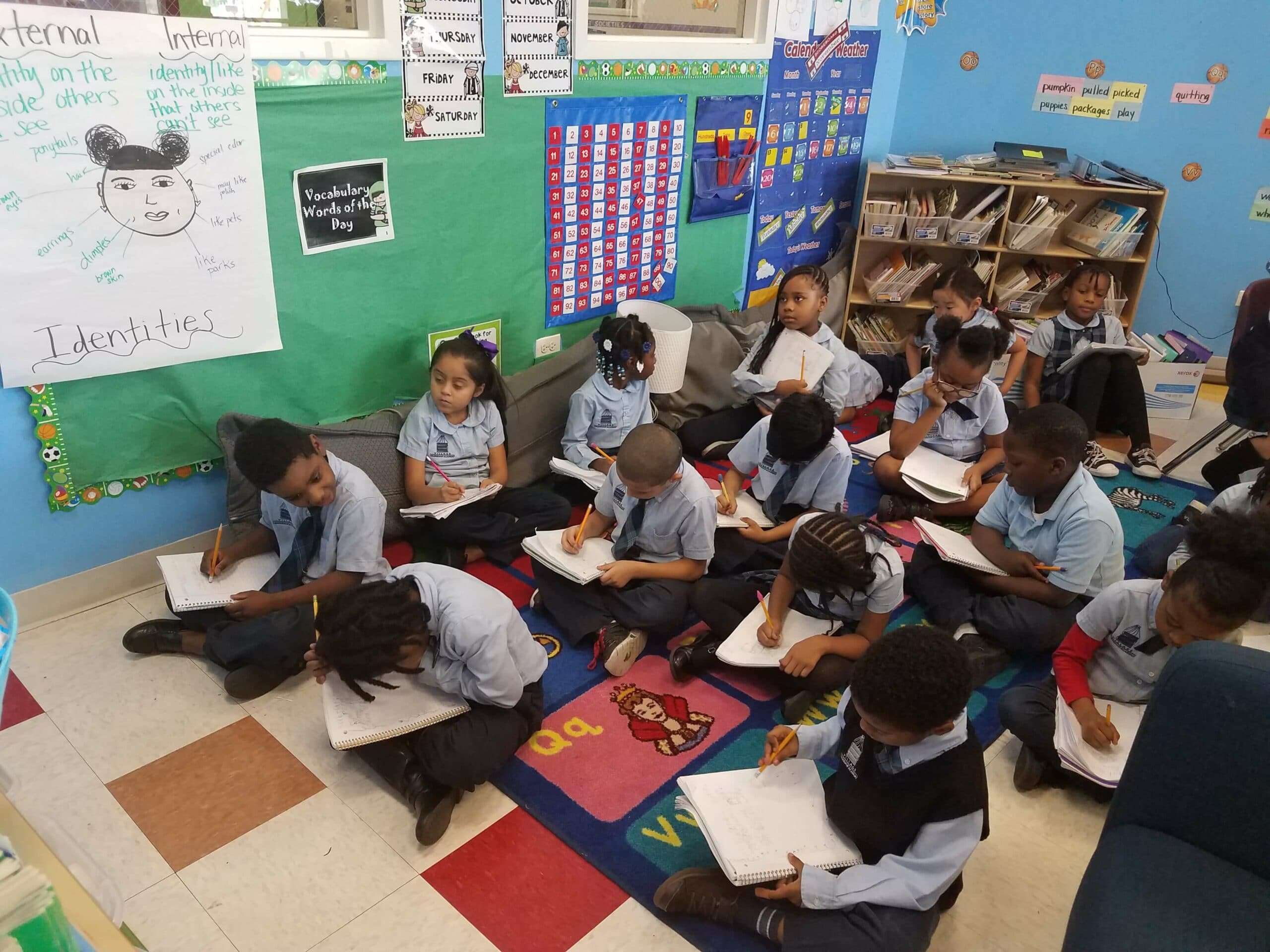Blog
Standardized Thinking in an Innovative World?
By:VLA Instructional Coordinator, Maria Wahlstrom
Well, as an educator, i have noticed that this routine remains pretty much stays the same. Good grades are granted to those who answer questions correctly: they are given to students who regurgitate exactly what we say and mimic exactly what we do. (Now, i am not saying that their is no such thing as a “correct answer:” that argument would be absolutely ridiculous. Obviously, phonics skills and math facts will pretty much stay the same, and we should definitely teach and evaluate students on certain facts).
However, what i am saying is that teaching only to standards (which is mostly based on regurgitation) creates an unnurturing environment for a child’s development, motivation, and actual potentials to contribute to this world. We need to extend our priorities beyond having students memorize facts, repeat correct answers, and regurgitate the correct thinking process in the correct way. We need to also focus on developing a child’s ability to critically question, engage, and innovate with what they observe and learn.
They should feel engaged and empowered in their learning. Nonetheless, the overall fundamental nature of our current standardized system continues to be problematic for our children and our world for a few reasons:
1. Through standardization, we fail to empower our students with their unique abilities. We pretend that there is really only one answer, one perspective, and one way to learn. Additionally, we claim that one type of test will measure all students, teachers, and schools. Standardized tests remain to be the primary factor in evaluating school quality, teacher quality, and determining college acceptance. “How to hold teachers accountable to high standards and get all children to do well on these tests” are at the forefront of many school mindsets and most education reform discussions.
But I believe that this focus is misguided. Obviously, standards should be high. However, if the tests are the forefront of all teaching, then (more times than not) many students end up lost along the way (in the numbers and statistics). Teachers end up teaching for growing numbers, rather than for growing people. Ironically, this deters children from a quality education: an education in which they feel empowered, enlightened, and curious. Empowering students should not be based on test scores: it should be based on uncovering student’s gifts, thinking skills, and exploring their questions. Students are more likely to be motivated to learn when they feel that their voices and unique thoughts are genuinely valued in school.
It is then that their concept of learning shifts from fulfilling a requirement to embarking on a worthwhile journey. It is then that they are much more likely to succeed. When we teach to only standardize our children, we don’t fully educate and empower them to develop their diverse and unique potentials.
2. Ironically, the current emphasis on “standards” inherently produces standardized thinking in a world that needs innovation. When we teach only to standards, we actually hinder our students’ diverse array of potentials. Think about it: when we grow up, we start to notice that sometimes there are many answers, not just the ones we were taught.
We also realize that there are many ways to view the exact same thing, and we should have acknowledged these perspectives. Additionally, we see that there are many ways to express our thoughts and demonstrate what we know (and most of the time, we do this in collaboration). However, the current nature of standards is based on a set of correct answers and correct procedures. Although today’s world needs new answers and new thinking, we remain teaching robotic answers and single minded thinking, which does not lead to change or improvement.
We need to empower our kids (regardless of race, class, or background) to know that their thinking is their power. Period. Their ability to question and evaluate is a valuable skill that needs nurturing and further development, and they can use their thinking and innovative skills to solve problems. As we get older, we begin to see that the real world is different than our schooling environment. What did our schools really prepare us for? Perhaps it prepared us for tests; it prepared us for college admission (and even that is debatable). But how about life? How about real problems in need of critical and creative solutions?
We need to teach our kids a fundamental lesson that is often overlooked: They already have power to think, create, and interact with this world (and this can come in many different forms). Now let’s develop it and help them use it for the positive changes they want to make.
3. Emphasizing reiteration and the single minded nature of standards can neglect creativity and the need to think outside the box. I believe there are two types of knowledge: dead and active, and students need both.
Students can learn facts and reiterate standards (what i call “dead knowledge” because it cannot move or change), but this is alone is not enough. It does not produce thinkers and movers. Students need to also accumulate “active knowledge:” knowledge they create, manipulate, and discover on their own. Ironically creativity is at its peak when kids are young, and standardizing children does not adequately embrace the development of active knowledge. In general, the current system rewards a student’s unique thought only if it enforces our standards: our ideas (as though all things should never change or be challenged).
But if you look across history, aren’t answers and ideas always shifting and progressing? Why cant we encourage our kids to be a part of that process? Shouldn’t we find ways to reward critical questioning and creative thought, as well as reiteration? Teaching to high standards is good, but teaching only to standards is dangerous.
4. Evaluating students solely on standards can misguide their self-view and overall motivation. After all, we reward them for reiteration, not creation. Their grade and test score are our stamps of approval that they are in fact, “smart;” they are “learning;” and they now have “potential in life.” But this approval is not based on their ability to think and manipulate ideas (which all great leaders have done). Most standards elicits memorization of facts and procedures, not thoughtfulness.
As a result many begin to believe that they can only be “smart” and successful if they think like us, abide by our rules, get into our schools, succeed on our tests, and conform to our system. Some don’t even bother to question and think outside the box because that is never rewarded. In this sense, children begin to think that they are not smart if they think differently or express themselves differently. They become conscious of whether or not they are saying the “correct things.”
Some even become hesitant to question or critically think about our history or ways of doing things.
This can develop a dangerous misconception: things are the way they are; they don’t have power to change things; and nothing can or should change.
Now I’m not saying that we should abolish standards. In fact, (like many educators) I believe we need to raise standards and provide enough resources and support so that teachers and students can be accountable to meeting them.
Standards acknowledge that some things will always stay the same, which is true, and we certainly need to make sure our kids memorize these things. However, standards alone should not be the forefront of our minds: we must teach beyond them. When education becomes a system that only teaches facts and formulas (without encouraging and rewarding kids to think on their own and uncover their own ideas in relation to what they learn), it can suppress their actual potentials. This system can become dangerous when it doesn’t include children’s voices and unique abilities along the way (and standardized tests are not designed to include their voices and unique abilities).
Many schools may say that they want to “motivate students,” but often times, they do the opposite when they obsess over test scores. They shut off their student’s own thoughts. They send the message that kids can be “smart and become anything in life” as long as they meet the following conditions: 1) they need to say and think what we tell them and 2) they need to do it our way with limited questioning. Even in a democracy, people loose their voices long before they grow up: they become part of a system that standardizes thinking and “stamps knowledge.” It remains to be a reality of education.
But as i walk through the double doors of VLA every morning towards the bunches of children on the other side of them, I am reminded that there are other ways of educating the future minds of this world. There are different solutions to well-known education problems, such as the achievement gap, and there are educators (like us) who are relentlessly trying those solutions. There are ways to empower teachers and in turn empower students. Yes, there are many challenges, but…there is hope.
I feel extremely fortunate to work in a school that recognizes the truth about children: our students are much more than numbers and scores– they are whole people developing a relationship with what they learn and observe in the world around them, and we are privileged to be their educators. We are honored to help them explore the world and their roles in it. In addition to teaching problems from a book, we teach about issues in their world. We also focus on extending their world view by exposing them to other cultures and regions–drawing patterns and connections between their experiences in their communities and the experiences in other communities. Whether we use science, social studies, or any other subject to approach solutions, we practice problem solving. We teach standards using real issues that matter to them.
Learning about the world does matter to them. I am reminded of this truth when I watch them sit at the edge of their seats with hands waving in the air as they impatiently wait to share their next “genius solution.” I watch them identify lessons from events that happened 1,000 years ago and relate it to personal interactions they experience on the playground. I watch other teachers integrate subjects to explore solutions for one question that the world is facing. I watch kids diligently write page long responses to questions they feel passionate about answering, and I feel inspired each time I watch them. When kids are inspired, empowered , and genuinely valued by their teachers, not only do they strive to meet standards, but I find that many times they exceed them. In face of challenges, they find ways to do well when they are convinced that there is a purpose (but this purpose varies from kid to kid, and it is not always driven by the concept of “getting into college”).
Our students and their potentials in this innovative world are the focus of and reason for our teaching: not the tests. After all, our students are much more thoughtful and observant than our standards and stamps measure and acknowledge. Students can be excellent thinkers and manipulators of information if we allow them to do so.
I see that in students everyday.
Enroll Now
Discover a partner in the future of your child. Enroll your scholar for the 2021-2022 school year today!
